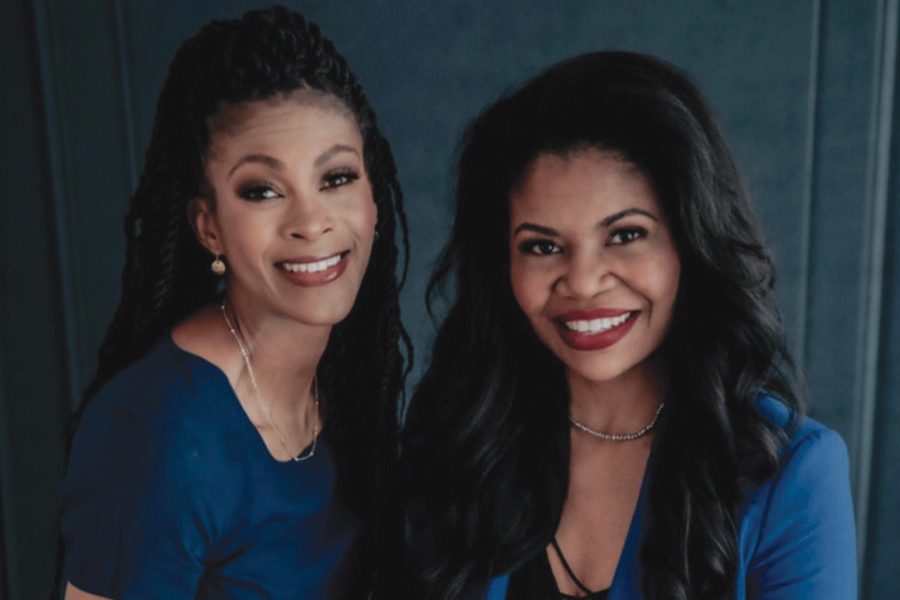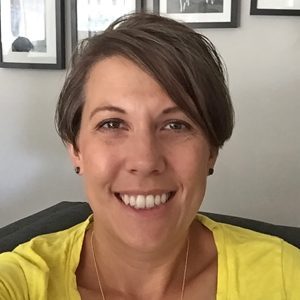
Home » Longtime community leader works to make an impact
Longtime community leader works to make an impact

April 13, 2022
Chauné Fitzgerald continues to make a mark on the Tri-City community through her volunteer work and advocacy, operating her own business and starting a successful nonprofit.
She’s also working to launch a Tri-City chapter of the Washington African American Chamber of Commerce.
But the Richland entrepreneur says she regularly feels unseen or invisible and works tirelessly to change this, not just for herself, but for vulnerable and disenfranchised members in the community.
“People just don’t see us. You get this from a lot of Blacks, that we are invisible,” Fitzgerald said. “People don’t make eye contact with you. They don’t speak to you, so you just don’t speak rather than take it personal. When you do business, you hope you get someone kind. You have to prove yourself until they get to know you. I found myself sometimes having to prove myself in order to get a seat at the table, and then your voice can be heard.”
Fitzgerald’s voice is heard loudly through her role as founder of Women of Wisdom Tri-Cities, a service organization working to “improve health and wealth of marginalized communities through engagement and empowerment.”
Formed in 2015, WOW is working on a return to its yearly fundraising tea held each Mother’s Day weekend until Covid-19 put a stop to its rising popularity.
“We outgrew every venue in just three years until we reached the convention center, and then Covid,” she said. The event is tentatively scheduled for May and money raised goes toward scholarships to local high school graduates.
Own Your Business launch
Through her work with WOW, Fitzgerald spun off a second effort called Own Your Business (OYB), a consulting arm of the nonprofit focused on business startup and resiliency strategies.
When pandemic restrictions limited what kinds of businesses could operate in 2020, “hairdressers were going to lose their livelihood. Most didn’t have a nest egg or didn’t have their ducks in a row and would go under.” Fitzgerald owns Salon Remedi in the Richland Parkway.
Many stylists didn’t qualify for Covid-specific loans or grant funding because they were operating without all the necessary licensing, didn’t have an employer identification number or hadn’t filed the previous year’s taxes, she said.
OYB “lets me help you legitimize your business,” Fitzgerald said. “Or maybe you are doing the walk of shame because you still don’t have a good accountant yet. The needs are different for many minority-owned businesses.”
Fitzgerald has a master’s in business administration with an emphasis on organizational leadership and business management. When she planned a fundraiser for local hairstylists and barbers, it got her noticed by the Washington State Microenterprise Association. The WSMA supports small businesses by assisting regional organizations, like WOW and OYB, and especially ones that reach people from various racial and ethnic backgrounds.
“These were the community members most affected by Covid, and most likely to die,” Fitzgerald said.
Her outreach efforts took off from there as she helped with diversity, equity and inclusion consulting for grant writing, finding the OYB aspect began to even outweigh the WOW work. She started hosting pop-up Covid-19 vaccine clinics with the Washington State Department of Health after the agency identified her as a “thought partner.”
“This is someone they are taking advice and feedback from,” Fitzgerald said. “I met with the staff at the DOH so I can figure out how to navigate Covid-19 prevention strategies in my community. There was a lot of hesitancy in the Black and brown community around the Covid vaccine.”
Together with the DOH’s Care-a-Van, Fitzgerald organized numerous clinics, including one at her own salon. The Care-a-Van targeted communities with vaccine gaps, often based on race or ethnicity.
“The vaccine clinics initially started in the Black churches so we could meet people where they are, on a Sunday, and they could get it before church or after church,” she said. “Most of these churches are located in east Pasco, in the heart of the Latino communities, so there was the intersectional reach.”
Diverse leadership
Fitzgerald sits on the board of the Tri-City Regional Chamber of Commerce, is part of the inclusion council for the MyTri2030 effort, unsuccessfully ran for a seat on Richland City Council in 2021 and was the 2020 winner of the Martin Luther King, Jr. Spirit Award, presented by Columbia Basin College. She received the award for her demonstration of King’s spirit of inclusion and promotion of social justice through her work with WOW and other organizations supporting marginalized members of the community.
Despite her education, accolades and presence on influential boards, Fitzgerald finds the business approach is far from a one-size-fits-all model.
“Maybe the tools weren’t culturally appropriate, or I wasn’t identifying with them. We didn’t have a Black chamber or African American chamber.”
It’s why Fitzgerald added this to her plate as well and is behind the 2021 establishment of the Washington African American Chamber of Commerce, with chapters intended for the Tri-Cities, Yakima and Walla Walla. She’s hoping to sign up 50 businesses to launch new software that requires a minimum number of members to sustain.
Moving to the Tri-Cities
Fitzgerald said she was one of the first Black-owned business owners in Richland when she launched Salon Remedi in 2008 shortly after arriving in the Tri-Cities.
“I was determined to create a space for me and my daughter. My husband was going to pay the rent even if I never had a client,” she joked.
Besides a master of cosmetology license, Fitzgerald has traveled the world styling hair for pageants like Miss USA and Miss Universe. She wanted to fill a need locally to serve all hair textures after relocating from Georgia for her husband’s job, a big transition and overall adjustment for a Black woman.
“There, I knew where to go and where not to go,” she said. “There is an unspoken segregation in the South. I didn’t know where to go here. I didn’t see anything that made me feel welcome. I am usually the only Black person in the room. I can often go a whole day and not see one of my clients.”
This desire to be seen is one of the reasons Fitzgerald ran for office in 2021.
“I wanted to at least show up and speak up. How do I share my story of how it feels to walk in the room and be the only (Black person) there? It’s not engaging, it’s not welcoming. You feel like you don’t have a voice. Or if you do have a seat at that table, that is the only reason why,” she said.
“It’s sad that historically Richland hasn’t had a Black person represent, and that bothered me because I pay taxes here, too. I look at the budget and I don’t see any reflection of my contributions. We have needs and wants from our community just as much, we just don’t have a voice,” she added. “I want people to realize sometimes representation does matter. If you don’t think so, think of if the whole Richland City Council was Black. Think if the decisions made would be the same. Maybe they would be, maybe not.”
When asked if she’ll run again, Fitzgerald said she “doesn’t have an answer for that.”
Fitzgerald sees the Tri-Cities as a diverse community, but without a large number of people to fill the racial or ethnic categories. She hopes people will take time to embrace diversity.
“We all have differences – there’s good and bad in every race and we should judge people by their actions and not by the surface. After 15 years here, what has improved is my ability to cope. People are getting to know me and they’re more welcoming of me. Does that count for everyone or just me?”
Local News Diversity
KEYWORDS april 2022





